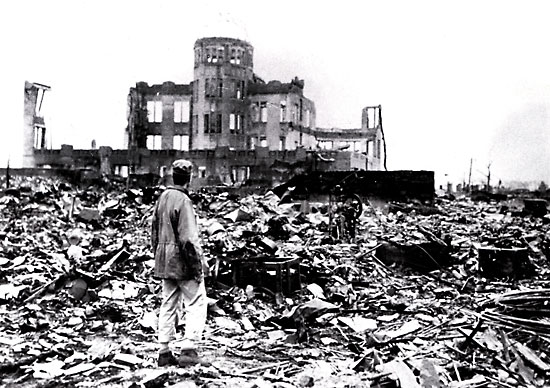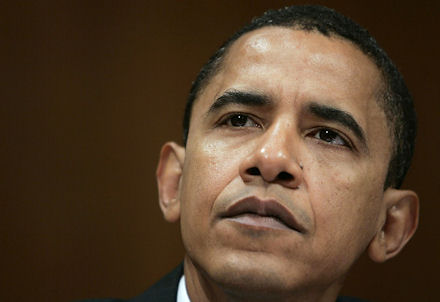Teacher and actor Brian Jones educated and moved his audience with his talk, ``Martin Luther King's last struggle'' at the United States' International Socialist Organization's ``Socialism 2008'' conference in Chicago on June 20, 2008.
By Dennis Brutus and Patrick Bond
August 6, 2008 -- Durban's University of KwaZulu-Natal vice-chancellor Malegapuru Makgoba is expected to deliver an edict that the Centre for Civil Society will close on December 31. The reason given by dean Donal McCracken to a sceptical School of Development Studies (where the centre is housed) is that staff do not have "permanent" funding. But neither do most of the university's research units, and there is money in centre reserves for at least a couple of years, plus ongoing donor support for many of our projects.
Hence this "execution" will be doggedly resisted because UKZN still has many staff and students who remember the struggle for non-racial democracy and don't mind speaking out to challenge misguided decisions.
As the two most senior academics in the centre, holding an honorary professorship and tenured research chair, respectively, we will resist, despite what a UKZN internal report recorded -- an environment of "intimidation and bullying", in which management "deploys power rather than intellect", as Rhodes professor Jimi Adesina put it.
By Brett Clark and Rebecca Clausen

By Norm Dixon
August 6 and August 9 2009 mark the 64th anniversaries of the US atomic-bomb attacks on the Japanese cities of Hiroshima and Nagasaki. In Hiroshima, an estimated 80,000 people were killed in a split second. Some 13 square kilometres of the city were obliterated. By December, at least another 70,000 people had died from radiation and injuries.
Three days after Hiroshima's destruction, the US dropped an A-bomb on Nagasaki, resulting in the deaths of at least 70,000 people before the year was out.
Since 1945, tens of thousands more residents of the two cities have continued to suffer and die from radiation-induced cancers, birth defects and still births.
A tiny group of US rulers met secretly in Washington and callously ordered this indiscriminate annihilation of civilian populations. They gave no explicit warnings. They rejected all alternatives, preferring to inflict the most extreme human carnage possible. They ordered and had carried out the two worst single terror acts in human history.
As the world corporate media goes Olympics mad, Links International Journal of Socialist Renewal has assembled a range of alternative viewpoints on what the modern Olympic Games really represent. While -- when it suits their interests -- establishment media commentators and capitalist governments loudly proclaim that ``sport and politics don't mix'', it soon becomes apparent that the Olympics spectacle is drenched in politics and the promotion of the worst aspects of dog-eat-dog capitalism. But sometimes it is also a site of struggle, as this selection of articles, drawn from the Links and Green Left Weekly archives, as well as other progressive sources, reveals.
At the 1968 Mexico City Olympic Games the enduring image was Tommie Smith and John Carlos, African-American athletes, raising their gloved clenched fists in support of the Black Power movement during the ``Star Spangled Banner''. They were subsequently banned from the games for life. Black Power Salute looks at what inspired them to make their protest, and what happened to them after the Games. Featuring Tommie Smith, Lee Evans, Bob Beamon and Delroy Lindo. Click HERE for parts 2-6.
Also read about Peter Norman, the Australian athlete who gained third place, who supported Smith's and Carlos' protest. Norman is the subject of a new documentary, Salute, which can be previewed here.
Part 1
 From ASAP, August 1, 2008 -- Dr Mohd Nasir Hashim, Socialist Party of Malaysia (PSM)
president and state assemblyperson for Kota Damansara in Selangor,
expressed his hopes to the Uncensored talk show host
Francis Paul Siah on Malaysiakini.tv last week.
From ASAP, August 1, 2008 -- Dr Mohd Nasir Hashim, Socialist Party of Malaysia (PSM)
president and state assemblyperson for Kota Damansara in Selangor,
expressed his hopes to the Uncensored talk show host
Francis Paul Siah on Malaysiakini.tv last week.
"There's so much work to be done'', he exclaims, reiterating his common theme of ``working for the people'' in the 30-minute show. First on his to-do list: "Damage control" and assuaging the economic plight of the poor.
However, while he's ``glad to meet with the ordinary people", Nasir also wants the people to know that he expects them to "jointly work on solutions" with him. "I don't want dependency on me or politics for every want", he said. "Maybe 50% with me, 50% somewhere else."
August 2, 2008 -- Federico Fuentes, Links and Green Left Weekly commentator based in Venezuela, is back in Caracas after a quick speaking tour of Australia.
By Michael Karadjis
August 2, 2008 (updated October 11, 2008) -- The new Serbian government last month finally cornered Radovan Karadzic, the former leader of the Bosnian Serb Republic (Republika Srpska), one of the two entities which make up Bosnia, during the war in 1992-5 when that statelet was created. Karadzic had been in hiding for many years from the International War Crimes Tribunal in, which in 1995 had indicted him for various war crimes including genocide.
The July 21 arrest led to a wave of hypocrisy in Western capitals, congratulating Serbia on the arrest of the vile criminal. Yet for the last seven years in Afghanistan and five years in Iraq, well upwards of a million people have been killed as a result of the US invasion and occupation of these countries. Whole countries are being destroyed; yet not only do these war crimes of climactic scale go unpunished, but these leading war criminals then see themselves as having the right to designate who is a war criminal.
By Gar Lipow
July 1 2008 -- Nobody, except for a small lunatic fringe, still disputes that human-caused climate chaos endangers all of us. Further, most serious scientific and technical groups that have looked at the question have concluded that we have the technological capability today to replace greenhouse gas emitting fossil fuels with efficiency improvements and clean energy — usually at a maximum cost of around the current worldwide military budget, probably much less. The question therefore is: what's stopping us?
To answer that we need to look at the causes of global warming — not the physical causes, but the economic and political flaws in our system that have prevented solutions from being implemented long after the problem was known.
